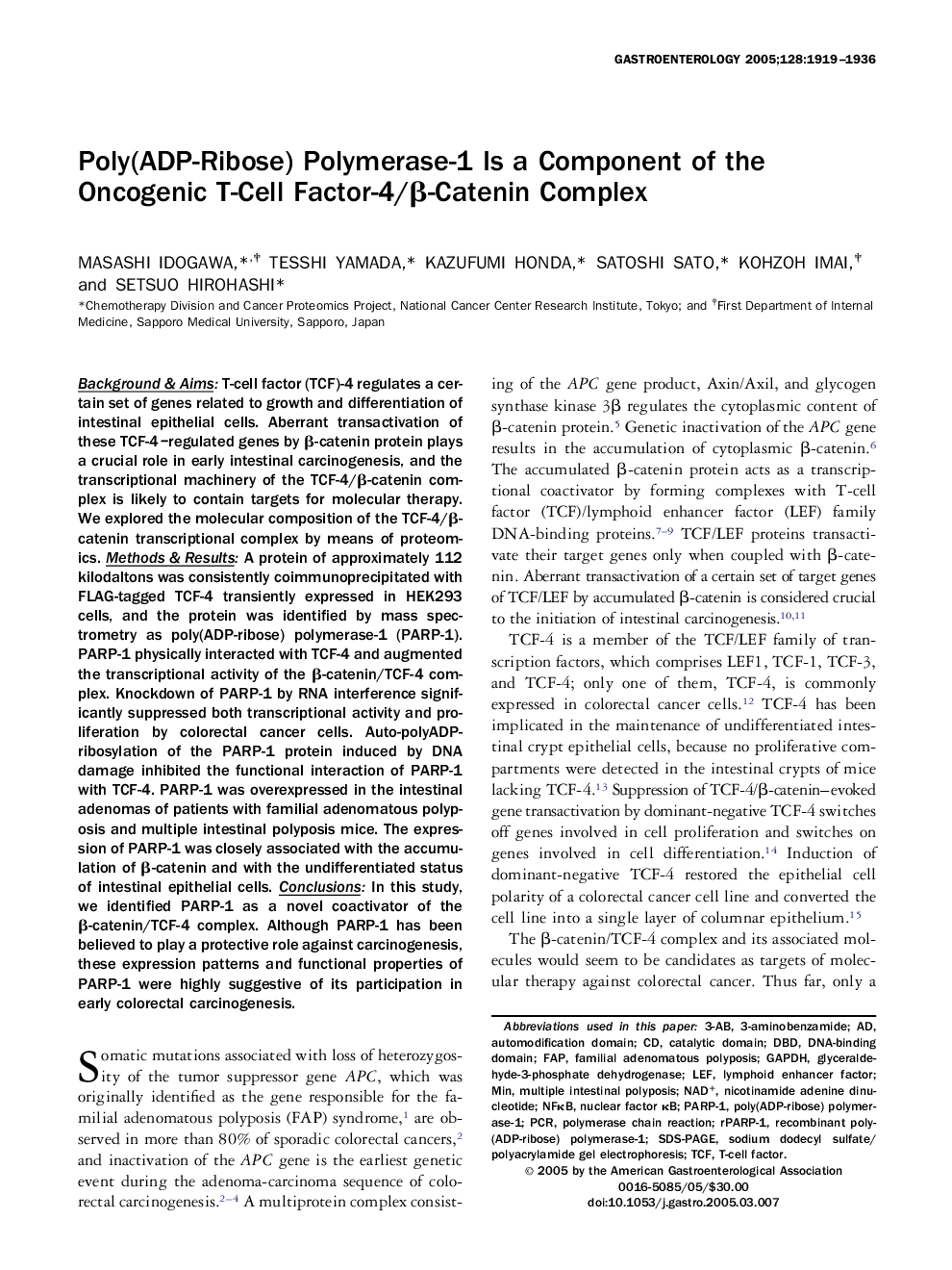| Article ID | Journal | Published Year | Pages | File Type |
|---|---|---|---|---|
| 3299730 | Gastroenterology | 2005 | 18 Pages |
Background & Aims: T-cell factor (TCF)-4 regulates a certain set of genes related to growth and differentiation of intestinal epithelial cells. Aberrant transactivation of these TCF-4-regulated genes by β-catenin protein plays a crucial role in early intestinal carcinogenesis, and the transcriptional machinery of the TCF-4/β-catenin complex is likely to contain targets for molecular therapy. We explored the molecular composition of the TCF-4/β-catenin transcriptional complex by means of proteomics. Methods & Results: A protein of approximately 112 kilodaltons was consistently coimmunoprecipitated with FLAG-tagged TCF-4 transiently expressed in HEK293 cells, and the protein was identified by mass spectrometry as poly(ADP-ribose) polymerase-1 (PARP-1). PARP-1 physically interacted with TCF-4 and augmented the transcriptional activity of the β-catenin/TCF-4 complex. Knockdown of PARP-1 by RNA interference significantly suppressed both transcriptional activity and proliferation by colorectal cancer cells. Auto-polyADP-ribosylation of the PARP-1 protein induced by DNA damage inhibited the functional interaction of PARP-1 with TCF-4. PARP-1 was overexpressed in the intestinal adenomas of patients with familial adenomatous polyposis and multiple intestinal polyposis mice. The expression of PARP-1 was closely associated with the accumulation of β-catenin and with the undifferentiated status of intestinal epithelial cells. Conclusions: In this study, we identified PARP-1 as a novel coactivator of the β-catenin/TCF-4 complex. Although PARP-1 has been believed to play a protective role against carcinogenesis, these expression patterns and functional properties of PARP-1 were highly suggestive of its participation in early colorectal carcinogenesis.
